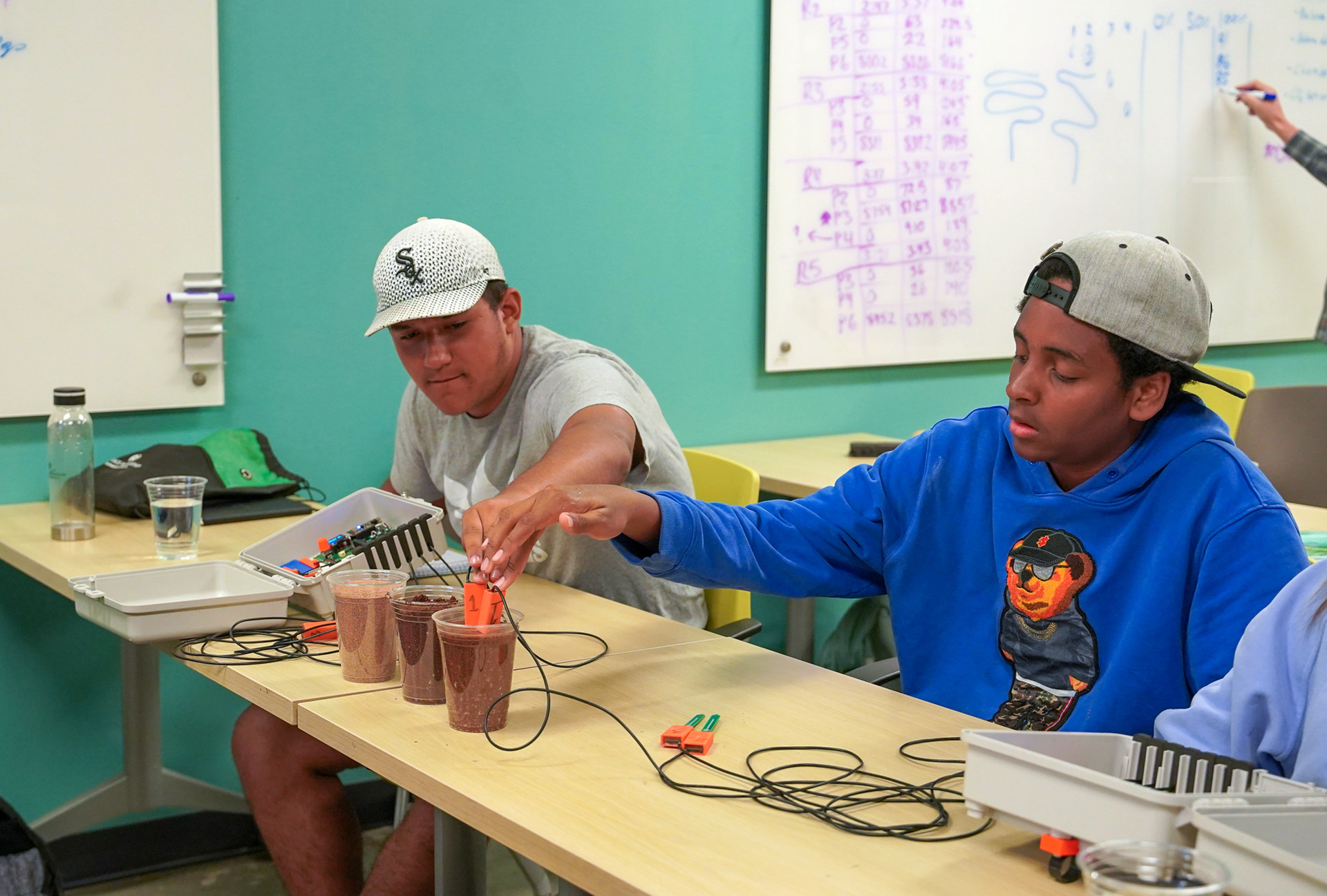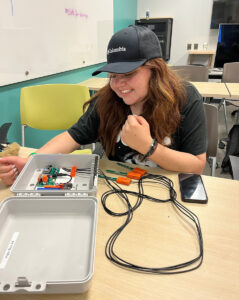
In response to the U.S. agriculture labor shortage, Colorado State University has developed an upskilling program to help prepare workers to fill critical jobs and provide career pathways, especially for rural Coloradans.
Faculty in the CSU College of Agricultural Sciences and Engagement and Extension worked with industry partners to design courses and credentials tailored to employers’ needs. Learners at any stage, from high school students to longtime industry employees, can earn badges in new ag-related skills for a boost in employability.
“The skill sets needed in agriculture today are changing,” said Jennifer Martin, an associate professor in meat safety and quality and director of strategic planning for the program. “We have to make sure that we also change the ways we train future employees so that they have those skills.”
Martin said the online format meets learners where they are – both physically and along the continuum of lifelong learning. It caters to anyone, anywhere, wanting to learn a new skill – high school students who want to work in agriculture after graduation, college students who want to enhance their degree, and business owners or longtime employees who want to stay on top of cutting-edge practices.
“As ag becomes more tech-based, it’s important to make sure that those folks in rural communities who rely on the technology feel empowered to understand it,” said Martin, who is also an Extension specialist.
The micro-credential system is “a new mode of what Extension has done forever to serve our stakeholders,” said Deana Namuth-Covert, executive director of the upskilling program. “We are striving to strengthen communities while also strengthening individuals and businesses.”
Co-created curriculum

Upskilling micro-courses teach students how to use new technologies that address critical issues, including water conservation, soil health and regenerative agriculture. Each course includes a hands-on activity or application and was designed around how learners engage today and how they might engage in the future.
Soil and Crop Sciences Professor Jay Ham developed a course on smart irrigation sensors and Internet of Things technology in partnership with 22 teachers from 20 Colorado high schools. Grants from CHS Foundation and SyncUp Colorado funded training for the instructors and provided kits for classrooms. Students learned how to measure soil moisture and collect data using internet-connected sensors.
Ruth Shepardson, an agricultural education teacher at Plateau Valley School in Collbran, said the irrigation sensors and Internet of Things curriculum were a good way to introduce her students to state-of-the-art technology that has the potential to make the industry more effective and sustainable. She said the program benefits teachers, too, by supporting them in learning new technology.
“My teaching schedule is really rigorous, so having the content made for me to deliver, on a cutting-edge idea, supported with hands-on kits and training to learn it, makes a big difference,” Shepardson said. “This gives students in my classroom access to high-level learning from current college professors, but organized in a manageable way.”
Feedback from Shepardson and her students helped to guide the course’s development.
What’s behind a badge?
Namuth-Covert said the program’s industry partners value credentials as evidence that their employees or potential employees have learned a skill.
Other CSU upskilling courses cover irrigation water management, food safety, digital communication, meat processing and seed technology. Namuth-Covert and Martin hope to bring in expertise from across campus to expand the program’s offerings. They envision courses on cybersecurity and artificial intelligence technologies.
“The challenges ahead of us both in agriculture and from a society perspective are going to require lots of different skill sets,” Martin said. “One of our focus areas in the future is building badges or micro-credentials that are transdisciplinary.”
Flexible option for sustainable ag management degree from CSU
CSU College of Agricultural Sciences and Northeast Community College in Nebraska have partnered to provide the opportunity for Northeast agronomy associate degree graduates to transfer to CSU and complete an in-person or online bachelor’s degree in soil and crop sciences with a concentration in sustainable agricultural management. This new offering creates an accessible pathway for students at any stage to learn practical farming knowledge and advanced technologies and finish a four-year degree. CSU is working with Colorado community colleges to build similar pathways.